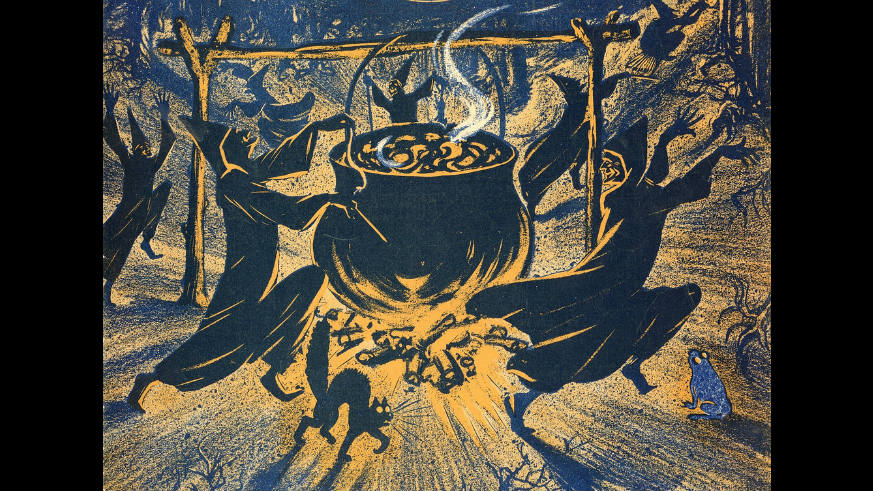After President Trump’s inauguration, the #magicresistance planned a mass binding spell, the equivalent of “smashing [POTUS’s] phone so he can’t tweet.”
That obviously didn’t work, but if those who practice witchcraft want to give it another shot, the Canadian Department of Justice proposed a bill that would legalize witchcraft.
“The witchcraft provisions in the Criminal Code reflect a culture, perspective and legal system of an entirely different era,” Omar Ha-Redeye, a lawyer in Toronto, told Broadly. “They are reminiscent of a time when women who did not conform to societal norms were not only shunned, but penalized. … These provisions also reflect a primarily Christian mindset, where non-Christian traditions, including what we now may refer to as Wicca, totemism, or animism or other traditions were demonized as being evil. It’s perhaps no surprise then that even today these provisions are used primarily against women or against people who follow non-mainstream religious traditions.”
Last week, the department announced the proposed updates to its penal code, which would repeal or amend a number of provisions.
Among the “obsolete” or “redundant” provisions, according to Bill C-51:
– Challenging someone to a duel (section 71);
– Advertising a reward for the return of stolen property “no questions asked” (section 143);
– Possessing, printing, distributing or publishing crime comics (paragraph 163(1)(b));
– Publishing blasphemous libel (section 296);
– Fraudulently pretending to practice witchcraft (section 365); and,
– Issuing trading stamps (section 427).
Section 365 is a “distant descendant of Medieval English laws that sentenced accused witches to burn at the stake,” the National Post reported.
People have been charged under Section 365, including a woman in 2009 who claimed to be possessed with the spirit of a lawyer’s dead sister, thus defrauding him out of $27,000. After pleading guilty to four counts of fraud, the Crown dropped the witchcraft charge.
In 2012, a Spanish-language newspaper publisher was charged with bilking two women out of a combined $23,000. His charges were dropped after he paid restitution to his victims, Toronto publication The Star reported.
Current Canadian law reads:
Everyone who fraudulently
(a) pretends to exercise or to use any kind of witchcraft, sorcery, enchantment or conjuration,
(b) undertakes, for a consideration, to tell fortunes, or
(c) pretends from his skill in or knowledge of an occult or crafty science to discover where or in what manner anything that is supposed to have been stolen or lost may be found,
is guilty of an offense punishable on summary conviction.
R.S., c. C-34, s. 323.
and
Everyone who
(a) challenges or attempts by any means to provoke another person to fight a duel,
(b) attempts to provoke a person to challenge another person to fight a duel, or
(c) accepts a challenge to fight a duel,
is guilty of an indictable offense and liable to imprisonment for a term not exceeding two years.
R.S., c. C-34, s. 72.
The law on “bawdy houses” (brothels) still stands.


















